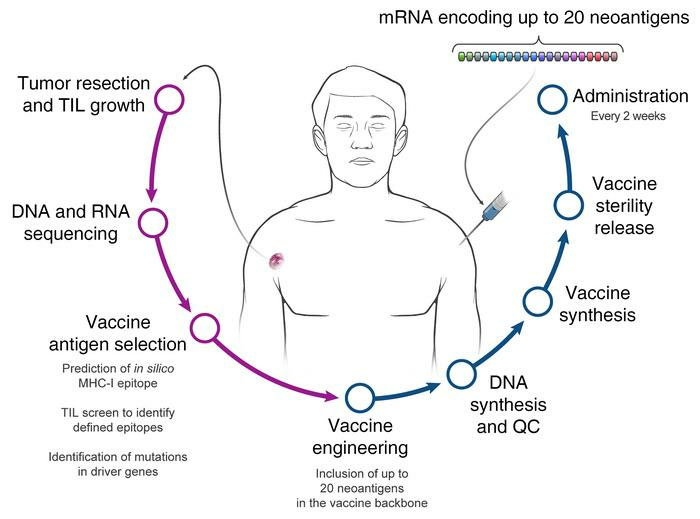AROUND 40% of us are likely to develop cancer at some point in our lives.
Modern medicine has seen considerable advances in cancer treatments, which has contributed to a steady decline in cancer deaths in the United States over the past 30 years.
Despite this, around 10 millionTrusted Source people worldwide die each year from cancer.
Brain cancers are notoriously difficult to treat, in part because of the challenges of delivering drugs into the brain. Only around 36% of people with malignant brain cancer survive more than 5 years.
Could mRNA vaccines hold the answer?
To find out, I spoke to Dr. Santosh Kesari, a neurologist and neuro-oncologist. Dr. Kesari is the director of Neuro-oncology at Pacific Neuroscience Institute and a professor in the Department of Translational Neurosciences and Neurotherapeutics at Saint John’s Cancer Institute, both in Santa Monica, CA.
We talked about the challenges of treating brain cancer and why Dr. Kesari thinks that mRNA vaccines have the potential to impact cancer treatment on a global scale.
To hear more about how cancer develops, how experts are developing tailored treatments for individual patients, and how Dr. Kesari sees mRNA vaccines and the future of cancer therapies, listen to the accompanying podcast here.
To start our conversation, I asked Dr. Kesari to share the biggest challenge he faces when treating his patients.
“One of the difficult things and the reason we haven’t made as much progress in brain cancer, and actually all brain disorders in general, is the blood-brain barrier,” he explained.
The blood-brain barrier comprises a lining of cells around the blood vessels in the brain. It prevents big molecules and pathogens from entering the brain.
“It’s really an evolutionary protective mechanism. We don’t want all the things that the rest of our body sees to go into the brain and cause neurological problems, including infections [by] viruses, bacteria, etc.,” Dr. Kesari said.
“Probably the most critical challenge that we have to deal with all brain diseases is getting drugs into the brain.”










